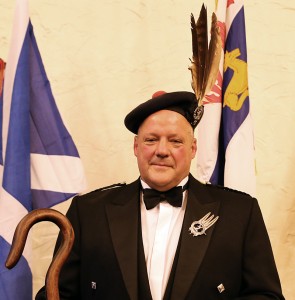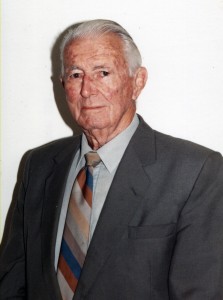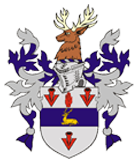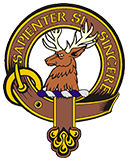The Chief

Grant Guthrie Davidson, 3rd of Davidston
Chief of the Name and Arms of Clan Davidson
(Note: “Grant’s Chapter” is on Page 4)
The Chiefship Renewed
The Search – For nearly eighty years, Clan Davidson had been without a Chief. Owing great success to the combined efforts of the Clan Davidson Association in the UK and the Clan Davidson Society in Australia, and several years of negotiations with Lord Lyon, Duncan Hector Davidson of New Zealand became the new Chief of Clan Davidson in 1996. Duncan (born on the14th June 1916 north of Auckland, New Zealand) was the senior descendant of the last Chief’s grandfather, Duncan IVth of Tulloch, Lord Lieutenant of Ross-shire. The descent is through Duncan 6th son, Hector Francis Davidson (b. 1857, d. 1907), the intervening lines having failed.

Duncan Hector Davidson, 1st of Davidston ca 1990
Duncan’s Chapter – Although a retired man of some years, Duncan graciously acceded to the desires of the various Clan Davidson organizations and allowed his name and claim to the chiefship to be brought before the UK Lyon Court for consideration. After much paperwork, the claim was granted by Lord Lyon in June 1996 and the long awaited chiefship was restored.
An engineer by profession, Duncan was educated at Whangarei High School and Auckland University but World War II intervened before took his degree. During the war he served for 5 years in the Royal New Zealand Air Force and on his discharge, now a fully qualified Electrical Engineer, he took a position with the Hawkes Bay Power Board. By 1956 he was Deputy Chief Engineer and in 1973 became Chief Engineer. He was a Fellow of the Institute of Professional Engineers, and a Justice of the Peace in New Zealand.
Less than two years into his tenure, Duncan passed away. Duncan will go into Clan history as the first of the renewed Chiefs of the Clan. Contrary to popular understanding, Duncan of Davidston was very much conscious of his responsibility as Chief. He was not a reluctant candidate for Chiefship by any means. In fact, his father, Eoin Godfrey Duncan Davidson, struggled for 10 years or so to gain the necessary proofs enabling him to petition for Recognition but gave up in frustration because of the impossibility of tracing the intervening lines.

